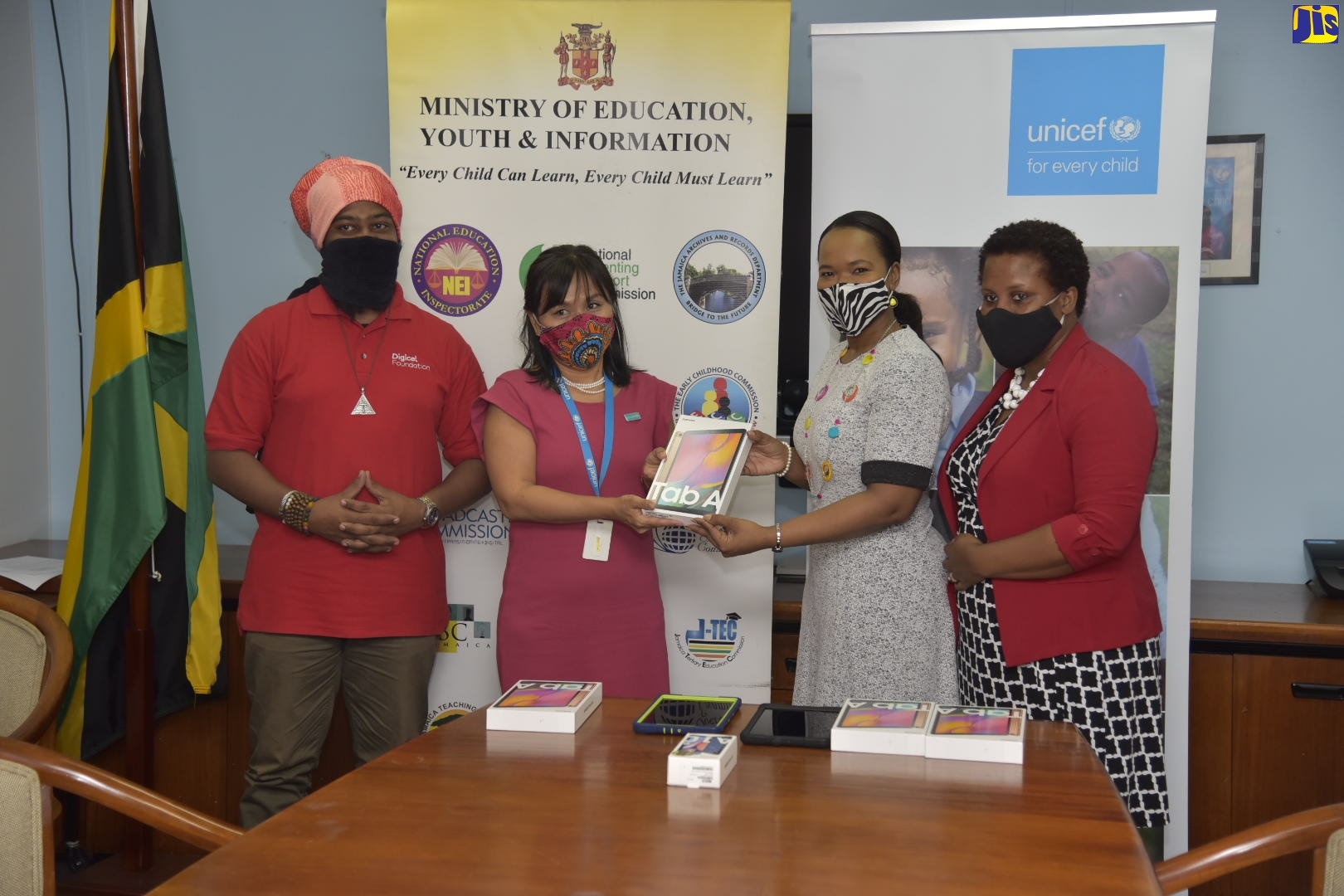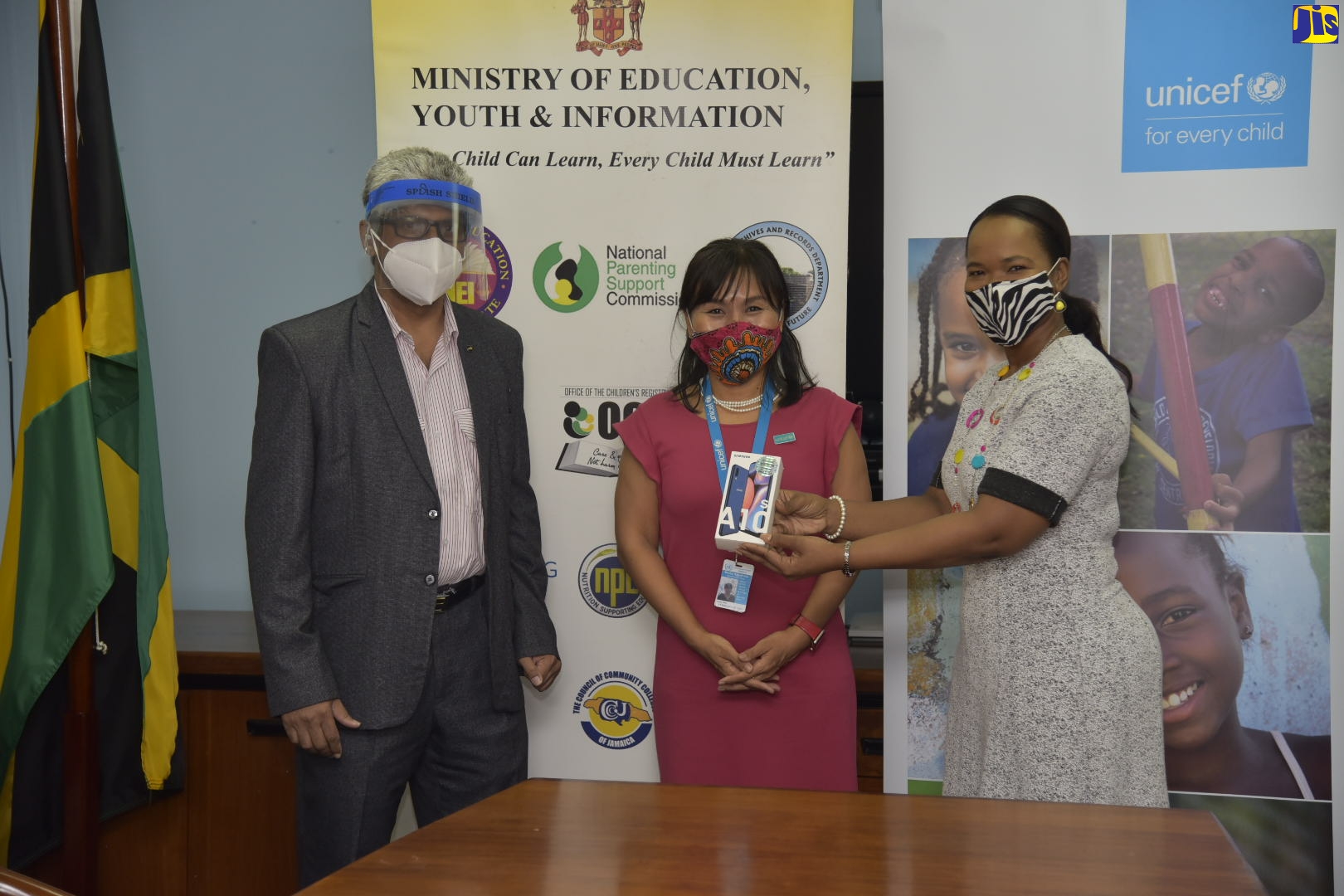UNICEF Donates Tablets To Assist Students With Special Needs
By: , July 16, 2020The Full Story
The United Nations Children’s Fund (UNICEF) has strengthened the Ministry of Education, Youth and Information capacity to facilitate continued learning among students with special needs.
UNICEF Jamaica representative, Mariko Kagoshima, presented 210 accessibility ready, SIM-enabled tablets to Acting Chief Education Officer in the Ministry, Dr Kasan Troupe, today (July 16), at the UNICEF office on Knutsford Boulevard in New Kingston.
The tablets will be distributed to students attending the Salvation Army School for the Blind, Carberry Court School of Special Education, Lister Mair/Gilby High School for the Deaf, St. Christopher’s School for the Deaf, Danny Williams School for the Deaf, Windsor School of Special Education, Woodlawn School of Special Education, Randolph Lopez School of Hope, and Llandilo School of Special Education.
Dr. Troupe told JIS News that the Ministry is very grateful to UNICEF and also the Digicel Foundation, which provided SIM cards for each tablet.
Digicel will also facilitate the students’ access to the Internet through an initial allocation of data plans to each SIM for a period of one year.
“These tablets will definitely bridge the gap for those children and we at the Ministry continue to make sure that there is equity in the education system. The Ministry’s principle and policy for inclusion will be fully realised in our thrust to provide quality education for every Jamaican child,” she said.
Dr. Troupe also commended UNICEF for backing the Ministry’s Behavioural Support Programme.
Fifty cellular phones were also handed over to the Ministry, which will be used to provide tele-counselling under the tele-mental health programme for students who are unable to come in for physical interface for their counselling sessions.
She pointed out that since the introduction of the initiative, more than 4,000 telecommunications sessions were conducted with students, who would not have been able to make their appointments due to challenges which the coronavirus (COVID-19) pandemic has presented.
“The opportunities imposed by the pandemic paved the way for innovations such as tele-counselling and tele-mental health care. The Ministry is re-imaging and reorganising its modes of communication, modes of learning and modes of support to make sure that no child is left behind,” she said.





